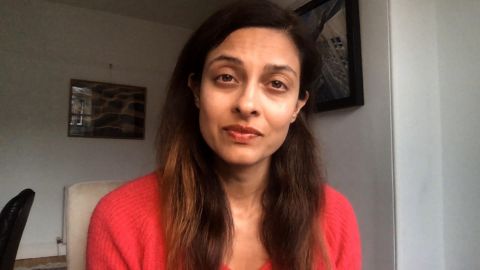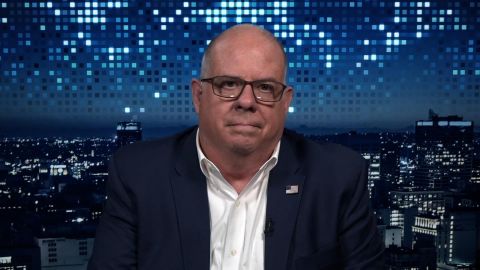Read Transcript EXPAND
CHRISTIANE AMANPOUR: Can I start by asking you, as a public health expert, what you make of the Oxford trials and this what everybody is now calling a breakthrough?
DEVI SRIDHAR, PROFESSOR OF GLOBAL PUBLIC HEALTH, UNIVERSITY OF EDINBURGH: Yes, I think it’s extremely exciting and some good news. I think there is still a long way to go until there is actually a vaccine that can be administered at a population level, but the early findings published in the Lancet show that so far it is safe and that it produces an immune response both in terms of antibodies and in terms of T-cells. So, I think it’s just another step forward and something for us to kind of look forward to because science will be the ultimate exit from our current crisis.
AMANPOUR: When you look at it and you hear what the researchers are saying, and they’re obviously being cautious, as you are, how long can people who are watching, listening, reading about this, how long can they expect to wait? Because obviously nothing is going to go back to normal until there is a vaccine.
SRIDHAR: Well, I think there is still some while to go. I mean, the next big challenge is going to be winter, especially in Europe and in Britain, and I don’t think the vaccine is going to solve that issue, so I think public health measures still need to be implemented going into this winter, but the hope is that in the next six to nine months there could be a safe and effective vaccine if the next phase goes ahead. So, I think, all we can do is say it’s progressing, it’s good news, we’ve never seen vaccines developed at this rate and kind of keep our fingers crossed as it moves forward. But also do the hard work of the public health slog to make sure we keep infections as low as possible in the meantime.
AMANPOUR: So, Professor, let me ask you, because you must also be eyeing the polls that show, at least anecdotally, that huge percentages of citizens in the United States and, indeed, in Europe are very wary and have said they won’t take it. And, of course, that is a real problem because that will render the vaccine pretty much ineffective if you don’t have enough people to make it effective. How concerned are you about that, and what does public health have to do to convince people that this is not just fast track, that when it comes, it will be the right thing to take?
SRIDHAR: Yes, that’s a huge worry, and there’s really three stages if you think of the vaccine process. The first part is where we are now in actually developing a vaccine. The second stage is manufacturing enough doses, making it available to all populations across the world, especially the hardest hit and poorest populations. And then the third part is actually convincing, you know, people to take it and that it’s safe. And I think the way to do that is to provide really clear data and clear messaging on what the risks could be and what the benefits are, and so far, the risks look minimal. But it is a big problem. This is still why we still see measles outbreaks across the world, including in high income countries like United States and Britain, even though we have an effective vaccine.
About This Episode EXPAND
Christiane speaks with public health professor Devi Sridhar about the UK’s coronavirus response. She also speaks with Maryland Governor Larry Hogan about his criticism of President Trump. Walter Isaacson speaks with Atlanta Mayor Keisha Lance Bottoms about why she doesn’t support defunding the police.
LEARN MORE


